On Dec. 8, 2011, a biz in Las Vegas had a catered lunch.
Less than a day later, a bunch of them were barfing.
The Southern Nevada Health District (SNHD) began an investigation the next day after receiving numerous reports of barfing among attendees; excerpts from their report are below.
Approximately 150 people work at Business A. Of the 63 employees who replied to the electronic survey, 50 reported they consumed food and/or drinks at the luncheon. Of the 50 luncheon attendees, 21 (42%) people met the case definition. An additional 29 people who ate at the 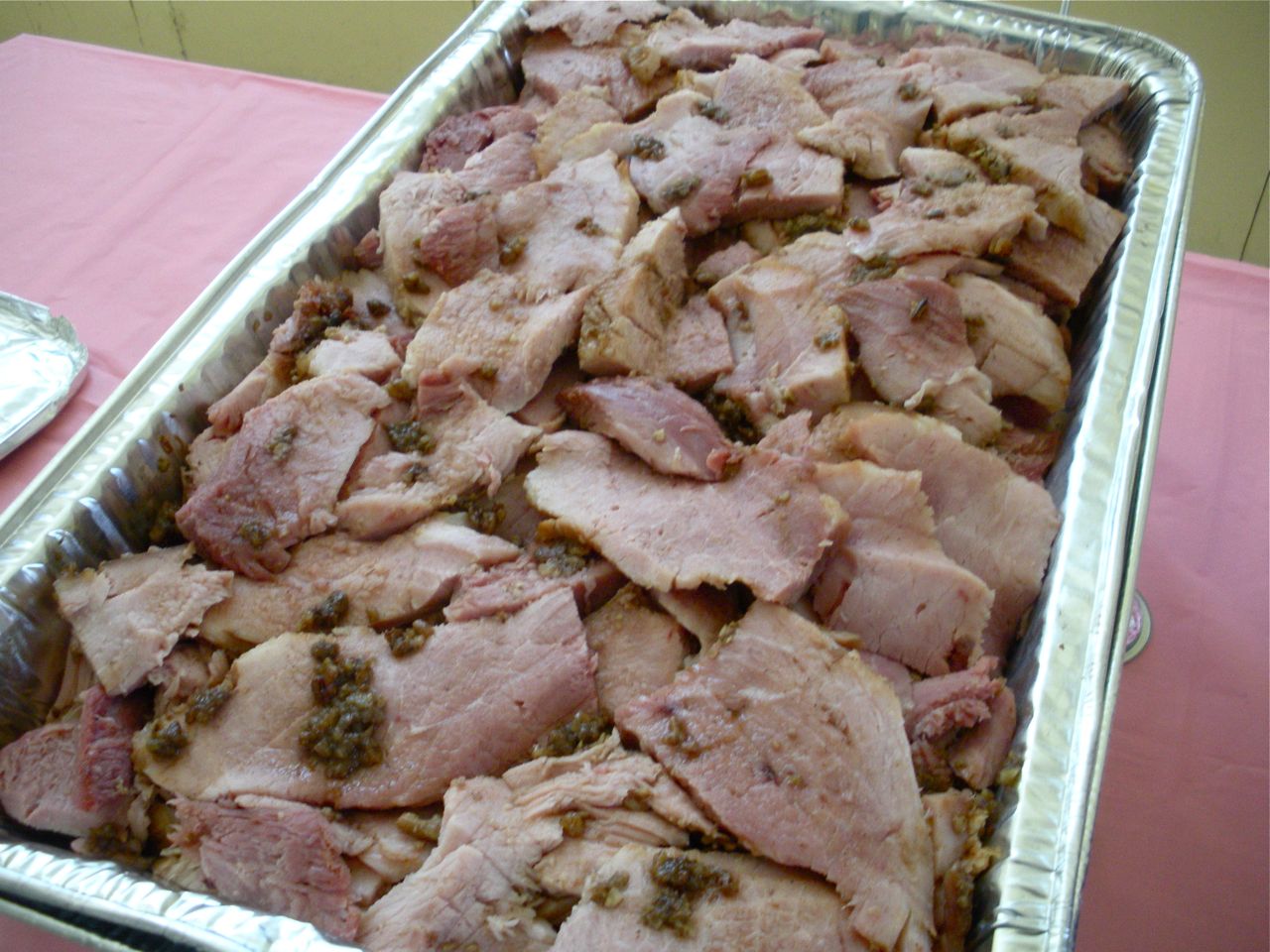 luncheon but did not become ill served as non-case study participants. No ill person sought medical attention from a healthcare provider.
luncheon but did not become ill served as non-case study participants. No ill person sought medical attention from a healthcare provider.
The caterer had a health card that is issued by the SNHD to food handlers. However, the caterer did not hold a catering permit issued by the SNHD, so health types don’t know if the same caterer sickened others at others meals because SNDH only tracks complaints against licensed businesses.
Both the caterer and a representative from Business A reported that the caterer
arrived at 9:00 am on December 8, and lunch service started at approximately 1230 hrs
(meal start time among ill persons ranged from 1130 to 1900 hrs) (Fig. 1). The duration
of the luncheon was unknown.
The caterer reported that all foods served were pre-cooked and ready-to-eat. The ham and turkey breasts were transported to Business A in a cooler with ice. Both meats were further sliced onsite, placed in bowls and re-heated in 5-6 batches per meat in two small non-commercial microwave ovens that were provided by Business A at the catering site. The caterer reported that food batches were stirred during heating. The caterer alleged the temperature of the meat was 170°F (76.7°C) after heating, but it was unclear where the temperature was taken in the meat. Heated ham slices were pooled in one chafing pan and canned pineapple with its juice was added.
Heated turkey meat was pooled in another pan and heated canned gravy was added. The
chafing dishes containing the ham and turkey were warmed by pans of hot water that was heated with Sterno heaters. Both meats were stored in their respective chafing dishes for about 0.5 hr prior to eating, but the duration of time foods were stored in the chafing dishes was not known.
Upon collecting foods for testing, EH staff observed that leftover foods were stored in a refrigerator that displayed the temperatures of <40°F, with the bulk of the food stored in covered consumer-grade plastic containers. All remaining food in their original containers was collected for testing and included: Mashed potatoes, ham and pineapple topping, green beans, salad with fruits, and .jpeg) two mixed-food plates containing 1) Ham, turkey, mashed potatoes, stuffing, green beans, and 2) Stuffing, mashed potatoes, green beans.
two mixed-food plates containing 1) Ham, turkey, mashed potatoes, stuffing, green beans, and 2) Stuffing, mashed potatoes, green beans.
I’m getting hungry.
The EH staff sent a formal notice to the caterer requiring all food operations to immediately cease and desist. They also required that the website which advertises the catering business be modified to announce that a permitted food facility will be providing the food to future events that are planned by the catering company. Additionally, EH also issued a bill to the caterer charging for the time that EH staff had spent in investigating the outbreak.
The isolation of C. perfringens was strongly suggestive that ham was the vehicle of transmission, and an error likely occurred during its re-heating and hot holding during the luncheon service. The heat generated by a small microwave oven might be insufficient to bring all portions of the ham to above 165°F (74°C) to destroy the C. perfringens bacteria. When the heating process is not evenly accomplished, the surviving C. perfringens bacteria can multiply and undergo sporulation. During the holding period where food is kept warm in covered chafing pans for extended periods of time, the spores can germinate to produce vegetative cells and multiply rapidly to large numbers. Ingestion of the bacteria during the luncheon may have resulted in further multiplication and sporulation in the intestine. The release of enterotoxin when C. perfringens sporulates can cause acute diarrhea. To prevent the proliferation of pathogens in potential hazardous food, the US FDA Food Code 2009 recommends that food that are reheated in a microwave for hot holding shall be reheated so that all parts of the food reach a temperature of at least 74oC (165oF) and the food is rotated or stirred, covered, and allowed to stand covered for 2 minutes after reheating (Section
3-403.11.B). Also, hot holding of such foods should occur at 57oC (135oF) or above
(Section 3-501.16.A1).
The majority of C. perfringens outbreaks are often the results of improperly cooled food or food held at room temperature for extended periods. Coupled with concurring epidemiological findings that the contamination and proliferation of the bacteria may have occurred at the luncheon, no further food traceback or recall action of the ham was implemented by the FDA.
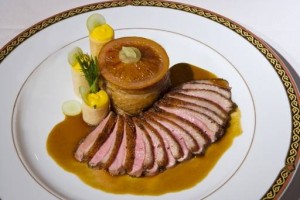 Vegas.
Vegas.
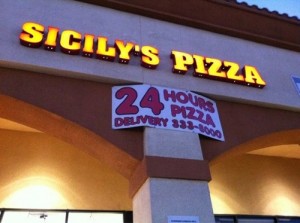
 snow… How about brown ice? The last place you’d want that moldy stuff is in your beverage cup.
snow… How about brown ice? The last place you’d want that moldy stuff is in your beverage cup.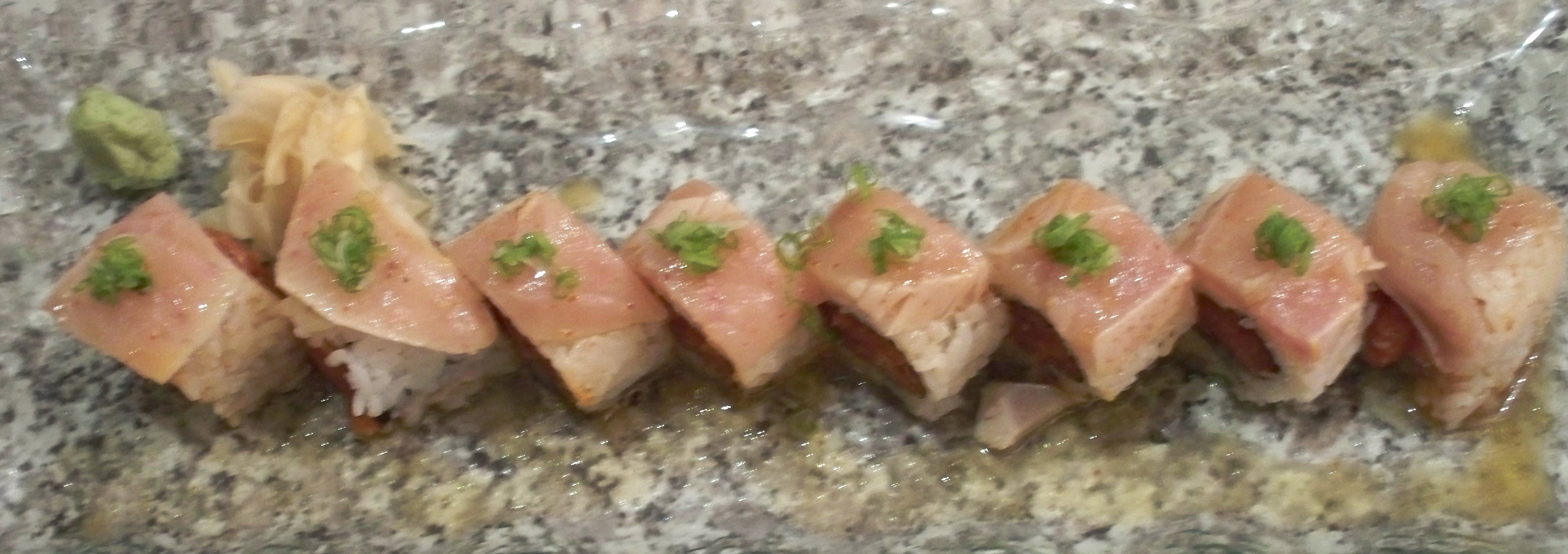 speak with us. Later that day, we spoke with Owner, Gene Nakanishi, who issued a statement:
speak with us. Later that day, we spoke with Owner, Gene Nakanishi, who issued a statement:.jpg) demerits means an automatic closure.
demerits means an automatic closure.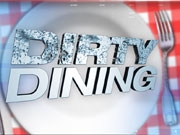 willing to show us around and answer all of our questions.
willing to show us around and answer all of our questions. luncheon but did not become ill served as non-case study participants. No ill person sought medical attention from a healthcare provider.
luncheon but did not become ill served as non-case study participants. No ill person sought medical attention from a healthcare provider..jpeg) two mixed-food plates containing 1) Ham, turkey, mashed potatoes, stuffing, green beans, and 2) Stuffing, mashed potatoes, green beans.
two mixed-food plates containing 1) Ham, turkey, mashed potatoes, stuffing, green beans, and 2) Stuffing, mashed potatoes, green beans..jpg) sickened runners.
sickened runners.